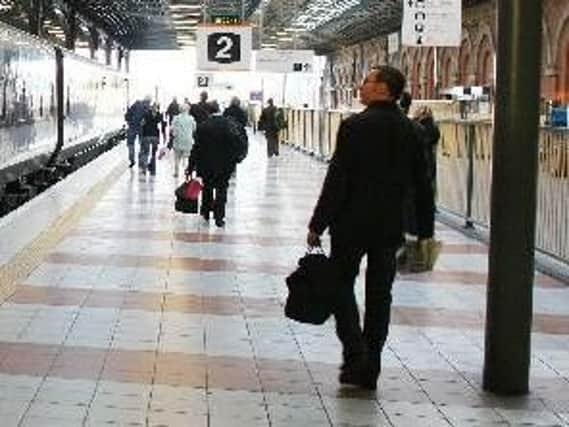OPINION: Think of it as '˜Rationalisation'


The run-up to the Westminster election has seen the release of Party Manifestos, which give some insight into each of the Parties’ political and economic aspirations.
Notably, in the Labour Party Manifesto, is the return to the concept of ‘Nationalisation’ through the renationalisation of a range of public services.
Advertisement
Hide AdAdvertisement
Hide AdWhile it is tempting to look back to this as a model for our economy, it is more exciting and challenging to look forward to a modern approach, ‘Rationalisation’ rather than ‘renationalisation’, to underpin public service delivery in a rebalanced, but more plural, Northern Ireland economy.
We are seeing the rapid growth of more socially purposed business models and organisations, focused on delivering both economic and social value across a widening range of social policy priorities across the UK.
In GB, we have seen the growth of public service mutuals, many of which are staff owned and controlled, which have been spun out from local authorities.
The Cabinet Office at Westminster has set up a Unit to enable and support the creation of a broader range of newly mutualised public service delivery companies.
Advertisement
Hide AdAdvertisement
Hide AdMutualisation is not a new idea; in Northern Ireland some years ago, we developed Mutual Energy, with the social and economic purpose of raising low cost capital, building and maintaining energy interconnection assets at a low cost, to reduce the cost burden on everyone’s energy bills.
Welsh Water in GB is a scaled up example of a mutualised public infrastructure service, required to operate an efficient economic business model returning profits to its customers through lower prices.
It is not such a leap to see a similar model transferring to local publicly owned infrastructure bodies such as Northern Ireland Water or our public transport services.
The idea of socially purposed organisations delivering public services is not new, we deliver social housing and in particular, new social housing construction through a network of socially purposed housing associations, significant palliative care services are delivered through a network of hospice organisations and very many of us engage in using the financial services of a Northern Ireland wide network of Credit Unions.
Advertisement
Hide AdAdvertisement
Hide AdOur economy is changing, becoming more plural and increasingly driven to balance social impact within financial impact.
This is happening in an increasing scale across the UK.
If we look at large social enterprises like HCT Group (Hackney Community Transport), we can see a community based social enterprise providing over 20 million bus passenger trips every year.
They deliver a range of transport services – from London red buses to social services transport and public transport services in the Channel Islands; from school transport to Park and Ride; from community transport to education and training.
They reinvest their locked in profits, from their commercial work, into further transport services or projects in the communities they serve.
Advertisement
Hide AdAdvertisement
Hide AdLike all good social enterprises they make their financial resources work hard and use profits to invest in and subsidise a range of other social value services.
If we look closer to home, in Bryson we have developed a new model of recycling for the UK, focused on co-production with households to maximise the volume and quality of materials recovered and ensure their remanufacture in local Northern Ireland markets.
In the last year we recovered over 62,000 tonnes of materials, with the majority of this material recycled locally with companies such as Huhtamaki, Cherry Plastic and Encirc.
The impact of this work goes beyond Bryson Recycling and has a much wider impact on the Northern Ireland economy, supporting over 700 jobs, with an estimated economic added value of £116 million.
Advertisement
Hide AdAdvertisement
Hide AdIn summary, the more exciting concept is one of ‘Rationalisation’ of service delivery, which is pushing our economic and social economy forward to a mixed and more plural economy.
We could see our public services being delivered through a range of mutuals, co-operatives, social enterprises and direct Public Sector bodies, delivering value to the tax payer, creating social value and just as importantly, high quality public services meeting and exceeding the needs of those who use them.